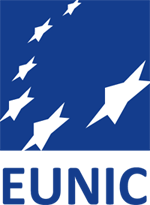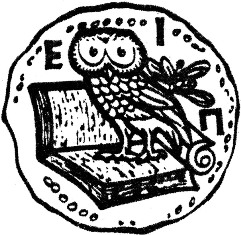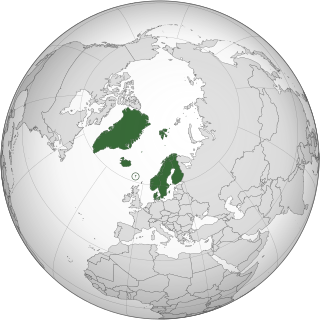Related Research Articles
The Fulbright Program, including the Fulbright–Hays Program, is one of several United States cultural exchange programs with the goal of improving intercultural relations, cultural diplomacy, and intercultural competence between the people of the United States and other countries through the exchange of persons, knowledge, and skills. Via the program, competitively-selected American citizens including students, scholars, teachers, professionals, scientists, and artists may receive scholarships or grants to study, conduct research, teach, or exercise their talents abroad; and citizens of other countries may qualify to do the same in the United States.
In international relations, public diplomacy broadly speaking, is any of the various government-sponsored efforts aimed at communicating directly with foreign publics to establish a dialogue designed to inform and influence with the aim of building support for the state's strategic objectives. These also include propaganda. As the international order has changed over the twentieth century, so has the practice of public diplomacy. Its practitioners use a variety of instruments and methods ranging from personal contact and media interviews to the internet and educational exchanges.

The Goethe-Institut is a non-profit German cultural association operational worldwide with 159 institutes, promoting the study of the German language abroad and encouraging international cultural exchange and relations. Around 246,000 people take part in these German courses per year.

Cultural diplomacy is a type of soft power that includes the "exchange of ideas, information, art, language and other aspects of culture among nations and their peoples in order to foster mutual understanding". The purpose of cultural diplomacy is for the people of a foreign nation to develop an understanding of the nation's ideals and institutions in an effort to build broad support for economic and political objectives. In essence "cultural diplomacy reveals the soul of a nation", which in turn creates influence. Public diplomacy has played an important role in advancing national security objectives.

The Japan Foundation was established in 1972 by an Act of the National Diet as a special legal entity to undertake international dissemination of Japanese culture, and became an Independent Administrative Institution under the jurisdiction of the Ministry of Foreign Affairs on 1 October 2003 under the "Independent Administrative Institution Japan Foundation Law".
Søren Kierkegaard Research Center at the University of Copenhagen in Denmark is an independent foundation headed by Dr. Niels Jørgen Cappelørn, and is dedicated to the research and promotion of 19th-century philosopher, Søren Kierkegaard.
The Estonian Institute is a non-governmental and non-profit organisation based in Tallinn aiming to promote Estonian culture abroad. The institute was founded in 1988/1989 as a shadow foreign office for the Estonian independence movement by Lennart Meri, later first foreign minister and first president of Estonia after their Soviet occupation. Current director of the institute is Katrin Maiste.

The European University Institute (EUI) is an international postgraduate and post-doctoral research-intensive university and an intergovernmental organisation with juridical personality, established by its founding member states to contribute to cultural and scientific development in the social sciences, in a European perspective. Its main campus is located in the hills above Florence in Fiesole, Italy.

The European Union National Institutes for Culture (EUNIC) is a network of European national institutes of culture and national bodies engaged in cultural and related activities beyond their national borders. EUNIC brings together organizations from all 27 EU member states and adds value through its global network of clusters. By pooling together the resources and expertise of its members and carrying out joint work on common areas of interest, EUNIC is a recognized partner of the European Union and its stakeholders in defining and implementing European policy on culture inside and outside the EU.

The Ministry of Foreign Affairs is the governmental body responsible for conducting foreign relations of the Republic of Turkey. The Ministry is responsible for Turkey's diplomatic missions abroad as well as providing support for Turkish citizens and promoting Turkish culture. The ministry implements Turkish foreign policy in accordance with the country's national interests. Established on 2 May 1920, its primary duties are administering diplomatic missions, negotiating international treaties and agreements, and representing the Republic of Turkey at the United Nations. The ministry is headquartered in the Turkish capital of Ankara and counts on more than 200 missions as embassies, permanent representation offices and consulates general, abroad. As of 2021, the Ministry of Foreign Affairs maintains 235 diplomatic posts worldwide. The current Minister of Foreign Affairs is Hakan Fidan, who has held the position since 3 June 2023.

The Institute of International Education (IIE) is an American 501(c) non-profit organization that focuses on international student exchange and aid, foreign affairs, and international peace and security. IIE creates programs of study and training for students, educators, and professionals from various sectors. The organization says its mission is to "build more peaceful and equitable societies by advancing scholarship, building economies, and promoting access to opportunity".
The American Russian Institute was an American public organization established to foster cultural ties with the Soviet Union. Founded in 1930 in New York City, it was closely associated with the Soviet All-Union Society for Cultural Relations with Foreign Countries (VOKS) and received materials from it for distribution in the United States. The ARI organized lectures, reports, concerts, exhibitions, and screenings of Soviet films, among other activities, to familiarize Americans with life in the USSR.

The Hellenic Foundation for Culture, founded in 1992, is a cultural and educational organization, based in Athens, which aims to promote Greek language and Greek culture. Professor Ioannis Georgakis, was the prime mover, founder and first President of the Hellenic Foundation for Culture and he had the vision of establishing an institution for Greek culture abroad.

The Balassi Institute is a worldwide non-profit cultural organization funded by the Ministry of Foreign Affairs (Külügyminisztérium) of Hungary. The institute spreads and promotes Hungarian language and culture abroad, and plays a key role in developing and attaining Hungary's objectives in the area of cultural diplomacy. As an organizational hub, it coordinates and directs all activities provided by Hungarian institutes abroad.
It is named after the Hungarian Renaissance lyric poet Bálint Balassi.

Belgium–Kosovo relations refer to the bilateral relations of the Kingdom of Belgium and the Republic of Kosovo. Kosovo has an embassy in Brussels and Belgium has a Liaison Office in Pristina.

Egypt–Japan relations are foreign relations between Egypt and Japan. Such relations are described by the Egyptian ambassador to Japan as a "very strong friendship", with embassies mutually established. At present, the two nations maintain a cordial relationship with strong economic and trade relations. Since the formal diplomatic relations were established, both countries have kept embassies in each other's capitals, demonstrating a dedication to continued communication and cooperation. Bilateral connections have been strengthened via a history of friendly exchanges and frequent visits between the two countries at different governmental levels. Their interactions are mostly shaped by their economic and trade ties, which include major Japanese investment in Egypt and a thriving exchange of goods and services. This economic involvement is backed by a variety of agreements that ease trade, protect investments, and promote mutual growth. Currently, Egypt and Japan have a friendly and cooperative relationship based on common interests and a commitment to regional stability and prosperity. This connection has grown to include considerable cultural exchanges and educational collaborations, strengthening the two countries' already strong ties.

The Istituto Italiano di Cultura, the Italian Cultural Institute in English, is a worldwide non-profit organization created by the Italian government. It promotes Italian culture and is involved in the teaching of the Italian language. The creation of the institute was in response to the desire for a deeper understanding of Italian culture throughout many continents. By organising cultural activities it supports the work carried out by the Italian Embassies and Consulates. There are 85 Italian Cultural Institutes throughout major cities around the world.

The Nordic countries are a geographical and cultural region in Northern Europe and the North Atlantic. It includes the sovereign states of Denmark, Finland, Iceland, Norway and Sweden; the autonomous territories of the Faroe Islands and Greenland; and the autonomous region of Åland.
Taiwan Academy are non-profit public institutes with a stated aim of promoting Mandarin language, Traditional Chinese characters, and research on Taiwan-related topics. The Ministry of Culture of the Republic of China (ROC) established the Taiwan Academy in 2011.
References
- ↑ Anna Jenkinson (30 September 2005). "Europe's 200 Languages, Costly to EU, Are Hailed by Brussels". Bloomberg. Retrieved 11 June 2012.
- ↑ "About". EUNIC. Retrieved 9 August 2024.
- ↑ Isherwood, Julian (28 March 2012). "Danish Institute in Syria closes". Politiken . Retrieved 20 April 2012.
- ↑ "Annual Reports". Danish Cultural Institute. Retrieved 9 August 2024.